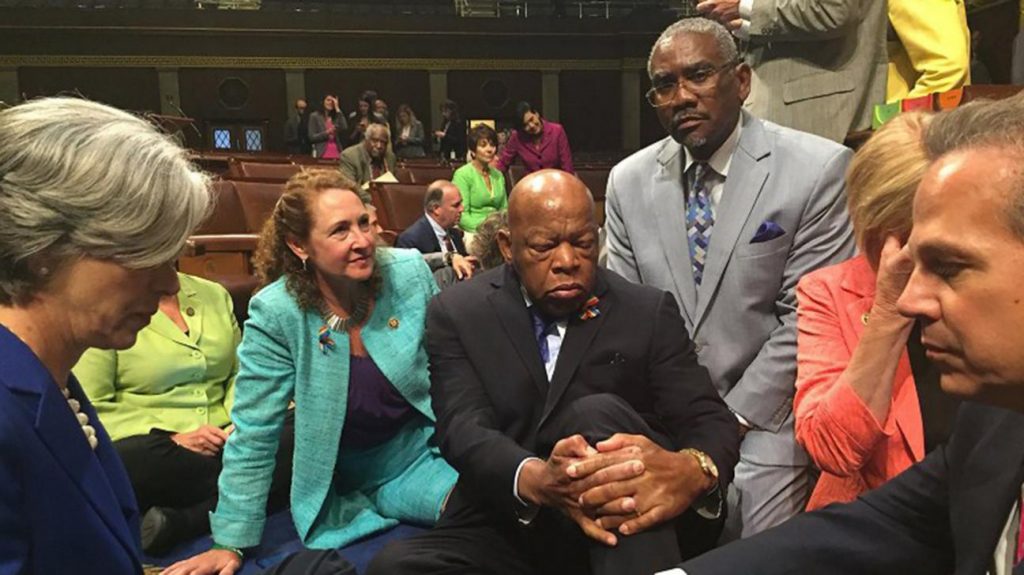Why we should expect to see more rule-breaking in Congress from now on
On June 12, 2016, the United States was confronted with another horrific gun massacre, this time at a nightclub in Orlando, Florida, resulting in the deaths of 49 people. Meanwhile, in Congress, efforts to advance gun control legislation were stymied by gun rights advocates with the backing of Republican leadership. On Wednesday, June 22, this standstill erupted in confrontation when Democratic members of Congress staged a nearly 26-hour sit-in on the floor of the House of Representatives, demanding action on gun control bills before Congress entered the July 4 recess, grinding breaching rules and grinding formal proceedings to a halt.
The sit-in occurred as a coordinated response by House Democrats over frustration with Republican leadership for not taking up gun control legislation. Shortly after the House convened that Wednesday morning, Georgia Congressman John Lewis, the civil rights icon chosen as the figurehead for the sit-in, offered a floor speech pleading for gun control legislation. Nearly the entire 188-person Democratic caucus participated in the sit-in, including visits from supportive Democratic Senators. Amid chants of “No bill, no break!” they proclaimed they would not budge until the majority leadership allowed consideration of gun control bills.
Republicans, caught off guard, quickly gaveled out and shut off House television cameras. The protest suspended almost all scheduled legislative business until 1 p.m. the next day and left Republican leadership with few options outside the extreme choice of using the Sergeant at Arms to forcibly restore order. Democrats further violated House rules through the use of mobile phones to broadcast live video of the demonstration on social media. This streaming video was widely picked up by news outlets, shared on social media platforms, and aired in its entirety by C-SPAN.
This protest was an example of what I call “procedural disobedience”—when legislators willfully violate chamber rules and disrupt chamber business for a political purpose.
| Topics: | Other |
| Tags: | Brian Alexander |

